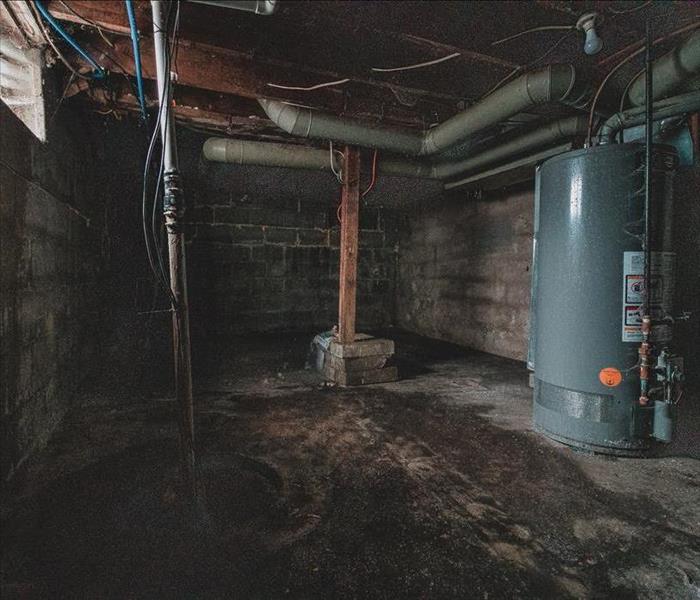Why Do Basements Flood?
6/9/2020 (Permalink)
If your basement floods every single time there’s a rain storm in Western New York, you might ask yourself “Why me?” when you flip on the light and discover puddles of water downstairs.
You might also ask yourself “why do basements flood in the first place, and is there anything I can do to stop it?” We’re here to help you answer those questions as best we can.
First, blame gravity.
Let’s get the obvious out of the way. Basements are the base of your home or business, built at least partially into the ground. They’re at the bottom – of course gravity is going to pull water in their direction. Water has to flow somewhere, and it tends to flow to the lowest point it can find.
So that’s the simple answer: basements are lower than the ground, so if water is going to flow somewhere in your house, that’s where it’ll end up.
But why does your basement flood in particular? Why does this happen to you, and not your boss or your brother-in-law? Let’s examine some common causes of basement flooding.
Common Causes of Basement Flooding
Often, flooding occurs due to a lack of proper drainage. Say your home is not graded correctly, or that your gutters are clogged. Problems like these will cause water to pool and not drain away, eventually finding its way into your basement.
It’s easy enough to clean your gutters. But if there’s an issue with your foundation drainage system, you might be in trouble. If your foundation and basement do not have a proper system in place to move water away, then water is going to seek out any cracks it can possible find in your basement walls and pool up in your basement.
Of course, drainage isn’t the only cause of basement flooding. Very often, serious floods are caused by the very systems designed to prevent the buildup of water. If your sump pump isn’t working correctly, for instance, or if it isn’t capable of keeping up with heavy rainfall, you’re likely to see flooding.
Backed up sewers can also be a huge problem. If sewers themselves are backed up or start to overflow, sewage can flow back towards your house and back up through a toilet or drain – not a fun cleanup.
Can the causes of basement flooding be fixed?
The good news is yes – if you can figure out why your basement is flooding, you should be able to fix the core issue. It just might not be easy.
If the issue is improper grading, for instance, a landscaper should be able to figure out how to fix it. If you’re more of a DIYer, and the issue isn’t enormous, you may be able to create a proper slope yourself with nothing more than a shovel, some soil and some elbow grease.
Clogged gutters are also easy enough to diagnose and clean. A good rule of thumb is to clean them out twice a year (once in the fall and once in the spring). Obviously, if you think they’re clogged, you may want to clean them out sooner than that.
Broken or underperforming sump pumps can also be replaced and repaired. If you think you have a sump pump issue, call a professional – they should be able to help you to figure things out. It’s also not a bad idea to install backup power for your sump pump so that it can continue to function even if you lose electricity in a storm.
As for sewage backups, all you can really do is install a one-way drain plug. While you can’t prevent local sewers from backing up, installing a plug should at least help to prevent a backup from entering your basement somewhat.
And if the issue is cracks in your foundation, you’ll very likely want to call in a pro, and fast. Cracks only get worse over time and can sometimes be difficult to locate. A professional should be able to help you to solve your problem for good.
So next time your basement floods, don’t ask yourself “Why me?” Ask yourself “What can I do to make sure this never happens again?” You’ll be glad that you did.






 24/7 Emergency Service
24/7 Emergency Service